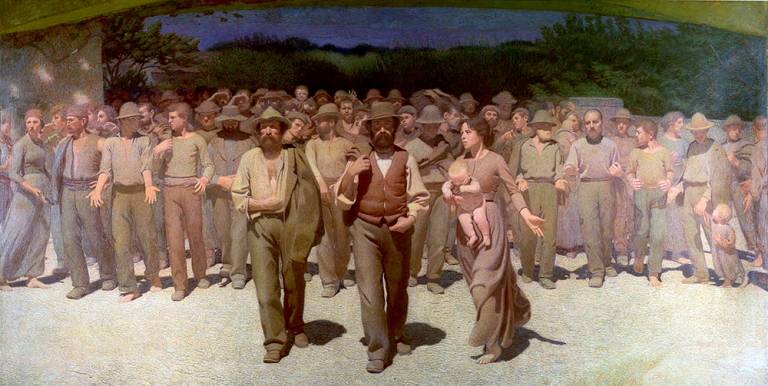A workshop, held in 2021, on the relationship between science and politics in the construction of national identities and citizenship in 19thC and 20thC Europe.

Programme
PANEL 1 - Medicine, Statistics and National Identity
- Calin Cotoin: The International Hygiene Conferences: Nation Building and Public Hygiene in 19th Century Romania.
- Rebecca Martin: National Bodies: The physicality of National Identity in 19th Century Anatomy and its impact on identity politics.
- Joe Cain: Why Did Karl Pearson Create a Laboratory for National Eugenics in 1907?
- Maria Kiladi: Eugenic Reasons for Granting Citizenship: Karl Pearson’s and Margeret Moul’s Paper on Immigration.
PANEL 2 - Politics, Science and National Identity
- Jelena Stanulovic: (Don't) Do-It-Yourself: From Socialist self-management to self-building computers in Yugoslavia during the 1980s.
- Maja Korolija: Science in FPR Yugoslavia: Tito's Science between internationalism and Nationalism, 1945-1963.
- Olha Zarechnyuk: Internationalist Science and Nationalist Politics: Shaping Architecture's local Polish character in the late Habsburg Lviv.
- Alexey Golubev: Propagandising knowledge, commodifying knowledge: A Stalinist approach to mass scientific literacy and its social effects.
PANEL 3 - Scientific Nationalism and Internationalism in the Construction of National Identity
Part 1
- José M. Pacheco and Albert Pressas I Puig: Strategies of the Francoist diplomatic Services and Spanish Science.
- Maricio Janue I Miret: The meaning of soft power for sub-state Nations: the beginning of Catalan-German cultural diplomacy.
- Kamiel Mobach: Reassembling International Experimental Collaboration at CERN.
Part 2
- Daniel Gamito-Marques: Using science to reinforce an imperial identity: The Cartography Commission and Portuguese colonial politics in the Scramble of Africa.
- Richard Bellis: Why Not British Morbid Anatomy?
- Frank James: Chemistry and concealment in constructing European Identities.
KEYNOTE ADDRESS
To conclude our workshop, we've invited Dr Cristiano Turbil to give a keynote address:
Cristiano Turbil: Toward a physiology of national identity: The use of physiological analogies in the construction of national identity in post unified Italy (1861-1900).
Abstract: In the late nineteenth century, questions regarding hygiene and public health became central to the medical, cultural and political debates in Italy. Particularly during the first few decades after the unification (1861), public health campaigns, at both local and national levels, became a key element in the creation of the new nation-state. Specifically, new medical ideas were promoted using a variety of formats designed to engage with Italians, regardless of their class and political ideas. These included public debates and talks, the publication of medical and scientific almanacs, and even pedagogical and utopian novels. By looking at these varied sources, this paper will explore how new medical and scientific ideas were used as a pedagogical and political tool to teach Italians how to be ‘doctors at home’ while also attempting to modernise the country. In doing so, it will also provide an overview of the circulation of medical knowledge in the post-unification Italian context and the importance this had in the complex process of forging a sense of citizenship among Italians.
Organisers
- Dr Cristiano Turbil | Tw: @cristianoturbil
- Dr Maria Kiladi | Tw: @froozygirl
- Professor Joe Cain | Tw: @profjoecain
The main image: The Fourth Estate, by Giuseppe Pellizza da Volpedo, between 1899 and 1901, originally entitled The Path of Workers (source).
 Close
Close

